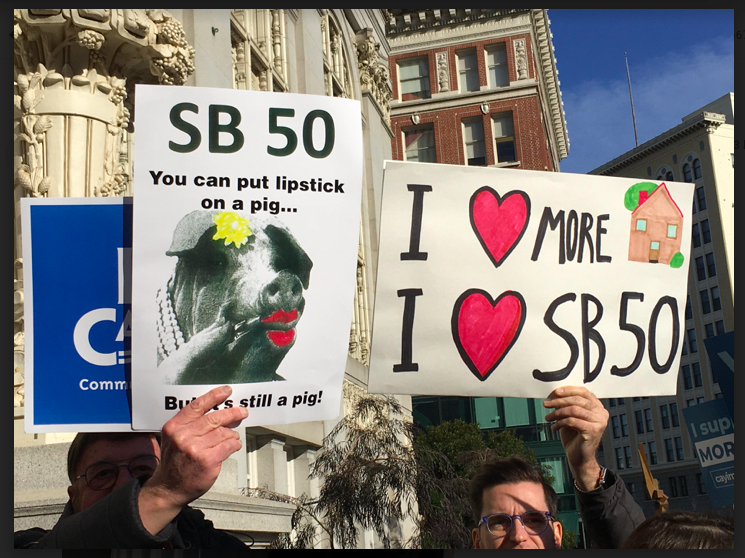We love letters to the editor. Here’s one from someone who actually knows the answer to a question I raised:
In “Peskin, Chan want to know if SF can sue the state over impossible housing rules,” Tim Redmond asks, “Could a San Francisco citizen, or organization [as distinguished from San Francisco itself], sue? ‘That,’ said Peskin, ‘is a very good question.’”
The answer is that any citizen who has paid taxes to the state can sue the state (or an agency thereof) to restrain illegal, injurious, or wasteful expenditures under section 526a of the Code of Civil Procedure. Any such lawsuit needs to be brought in state court because federal courts have strict standing requirements.

The portion of SB 423 singling out San Francisco is illegal because it violates the California Constitution, Article IV, Section 16(b): “A local or special statute is invalid in any case if a general statute can be made applicable.” A taxpayer action could seek a declaration that this portion of SB 423 is an invalid special statute. Notably, there isn’t even language in the bill, as there is in other special statutes, purporting to justify it as addressing a problem unique to San Francisco.
A taxpayer action could also seek a broader declaration that the state housing laws do not take precedence over San Francisco zoning laws, because as a charter city, San Francisco has a right to home rule protected by the California Constitution. This power includes zoning. A conflicting state law, even on a matter of statewide concern, only prevails over home rule if the law is reasonably related to resolution of a matter of statewide concern and narrowly tailored to avoid unnecessary interference in local governance.
The state housing laws fail this test for numerous reasons. Studies by the Terner Center show the laws have failed to achieve their goals and scholars have described them as “ad hoc and not model based.”
Nick Waranoff
Nick Waranoff is a retired real estate lawyer.




